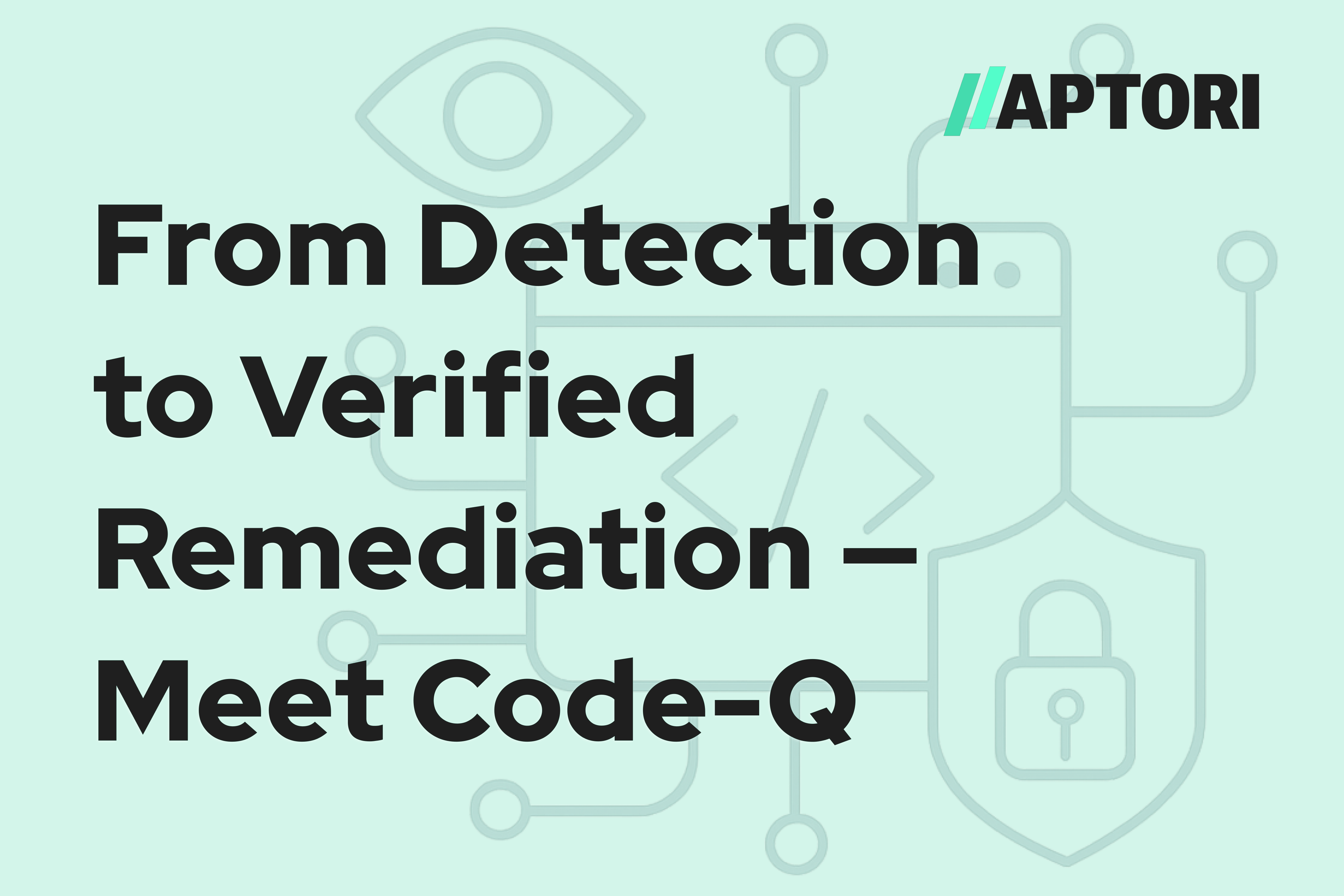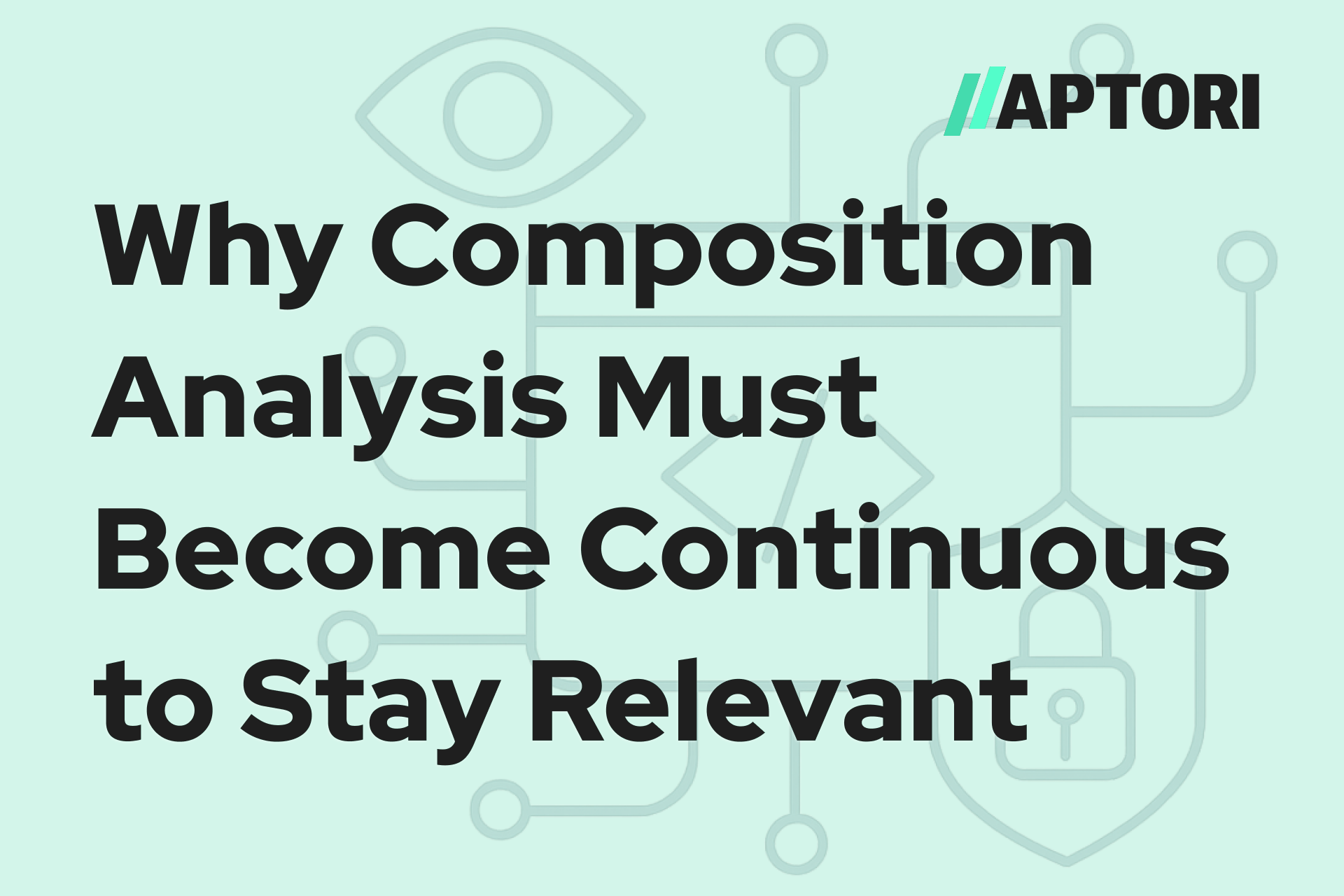At the 2025 RSA Conference in San Francisco, Aptori was recognized as the Hot Company in AI-Powered Application Security by Cyber Defense Magazine’s Global InfoSec Awards. This recognition wasn’t for another incremental security feature. It marked a shift — one that every CISO leading a modern enterprise must now understand: AI has moved from analyzing threats to actively securing applications.
The Broken Model of Legacy Application Security
For two decades, application security has depended on a familiar stack — SAST, DAST, and manual pen testing.
Each tool promised visibility. Few delivered action.
The results are well known:
- Static scanners flood teams with false positives.
- DAST tools rely on brittle crawling and fuzzing, missing logic-level flaws.
- Manual penetration testing is slow, expensive, and misaligned with continuous deployment.
And while organizations continue to buy more tools, breaches have accelerated.
Compliance audits get passed, but vulnerabilities remain exploitable in production.
Because compliance does not prevent attacks — it only measures preparedness after the fact.
Legacy AppSec assumes software changes slowly. It assumes humans can triage every finding. It assumes production is static.
None of those assumptions are true in 2025.
Modern enterprises deploy multiple times a day, integrate APIs across cloud and on-prem systems, and rely on distributed microservices.
Security that reacts quarterly cannot protect systems that change hourly.
The Rise of AI-Powered Application Security
The award recognizes Aptori’s pioneering work in AI-powered, semantic, and continuous application security testing— a new generation of security technology built for today’s speed of development.
The core idea is simple but profound:
AI can understand the intent of an application — not just its syntax — and secure it intelligently.
Instead of static analysis rules or blind fuzzing, Aptori’s AI agents model how an application behaves, how data flows, and where security controls fail in context.
This allows Aptori to detect and validate real, exploitable vulnerabilities, eliminating the noise that overwhelms traditional scanners.
With semantic reasoning, Aptori’s AI understands code the way a developer or attacker would — recognizing how a specific API endpoint, data object, or authentication flow could be exploited.
That level of comprehension turns AI from a helper into an autonomous security engineer.
From Detection to Remediation
The gap between identifying a vulnerability and fixing it has always been the most expensive part of security operations.
Aptori bridges that gap by introducing AI-driven triage and code remediation.
When a vulnerability is found, the AI doesn’t just label it — it:
- Assesses the exploitability in context (real vs. theoretical risk).
- Identifies the root cause in the code or configuration.
- Suggests or implements the precise fix, consistent with coding patterns and frameworks used.
This capability fundamentally changes how security integrates into development.
Security findings no longer wait for human review or manual verification. They’re triaged, contextualized, and resolved in hours, not weeks.
Semantic Testing: Understanding the Application, Not Just Scanning It
At the heart of Aptori’s AI security engine is SMART — Semantic Modeling for Application & API Risk Testing.
SMART interprets applications at a semantic level, creating a model of how components interact, how APIs expose data, and how logic can be abused.
This goes beyond signatures or pattern matching, e Aptori to uncover vulnerabilities like:
- Broken Object Level Authorization (BOLA)
- Business Logic Abuse
- Excessive Data Exposure
- Insecure Direct Object References (IDOR)
These are the vulnerabilities that traditional scanners cannot find because they require understanding intent — how the application is supposed to behave, and what happens when that intent is manipulated.
For example, an API endpoint that lets users view their own account data might expose another user’s data if authorization checks are misaligned.
A crawler can’t detect that. A fuzzer won’t guess it.
But a semantic engine can reason about it.
That’s the difference between “testing for vulnerabilities” and understanding them.
Continuous Security for Modern Development
Security can no longer be an isolated phase at the end of development.
Aptori integrates directly into CI/CD pipelines, performing continuous, autonomous testing as part of every release.
This means:
- Each merge request can be analyzed for new vulnerabilities.
- Security testing becomes a daily, automated event, not an annual exercise.
- Audit-ready evidence for standards like PCI DSS 4.0, NIST CSF, and SOC 2 is generated automatically.
Continuous testing aligns security with agility — enabling developers to release faster while maintaining confidence that vulnerabilities are managed and compliance is preserved.
For the CISO, this delivers measurable improvements in risk posture without slowing teams down.
Security finally becomes a business enabler, not a bottleneck.
Why Legacy DAST and SAST Can’t Keep Up
Traditional DAST tools still rely on crawling, fuzzing, and replaying payloads to simulate attacks.
They lack context. They don’t understand the logic behind an API or the data relationships that define modern systems.
The result:
- They report surface-level issues (like reflected XSS) but miss deep authorization flaws.
- They can’t distinguish exploitable vulnerabilities from theoretical ones.
- They can’t adapt to APIs that evolve daily.
In contrast, AI-powered semantic testing learns from the application itself — from its architecture, dependencies, and execution context — producing deterministic, verified results.
Legacy testing was built for web pages.
Aptori is built for APIs, microservices, and continuous deployment.
The CISO Perspective: From Audit-Driven to Intelligence-Driven Security
CISOs face an impossible equation: faster releases, tighter regulations, and more complex attack surfaces.
Traditional vulnerability management focuses on passing audits — not preventing breaches.
Aptori flips this model.
It treats compliance as a natural outcome of continuous, intelligent security — not the goal.
With unified visibility across code, APIs, and infrastructure, CISOs gain the ability to:
- Prioritize vulnerabilities that actually matter.
- Demonstrate continuous compliance through live evidence.
- Free security teams from manual triage.
The shift is from reactive defense to proactive intelligence.
From static reports to continuous assurance.
From compliance-driven to risk-driven security.
AI for the Good Guys
Aptori was founded on a simple but powerful belief: AI should work for the defenders. The same techniques attackers use to uncover weaknesses can be leveraged to secure systems — only faster, more intelligently, and at massive scale.
This is where cybersecurity is heading: autonomous, context-aware systems that continuously assess, protect, and strengthen application security without waiting on human intervention.
Earning the Global InfoSec Award for Hot Company – AI-Powered Application Security validates that mission and reflects what the industry already recognizes: AI is redefining application security. Not as a distant vision, but as a present reality inside enterprises that have integrated Aptori into their CI/CD pipelines, APIs, and compliance workflows.
From the start, the goal has been to make secure software possible at the speed of modern development — a pace that AI has now made even faster.
A Call to Action for Security Leaders
If you’re a CISO or AppSec leader still depending on manual testing and legacy scanners, this is your call to modernize.
AI-powered semantic testing isn’t an optional enhancement — it’s the foundation of resilient security in the age of continuous delivery.
Security must operate at the speed of development and the depth of understanding that only AI can deliver.
Your software is evolving continuously. Your security should too.
Take control of your Application and API security
See how Aptori’s award-winning, AI-driven platform uncovers hidden business logic risks across your code, applications, and APIs. Aptori prioritizes the risks that matter and automates remediation, helping teams move from reactive security to continuous assurance.
Request your personalized demo today.















